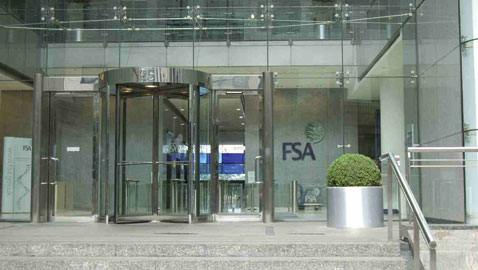
The FSA has secured what it has hailed as a “key victory” in the battle against unauthorised businesses.
The High Court declared that David Banner-Eve, Stuart Cohen, Asset Land Investments Plc and Asset L.I. Inc. ran an illegal land bank by operating a collective investment scheme without FSA authorisation.
The pair sold plots of land across the UK through their companies, with the promise that investors would make a significant profit within two to three years when the land obtained planning permission and was sold. Investors were also told by sales staff that Asset Land would apply for the land to be ‘re-zoned’ to assist with obtaining planning permission and that they had property developers lined up to purchase the sites.
The regulator says it is aware of about 1,200 investors with some paying between £5,000 and £25,000 for each individual plot of land. To date, no planning permission has been obtained for any of the sites marketed by Asset Land.
The Honourable Mr Justice Andrew Smith found that in giving evidence at the trial, Banner-Eve had been deliberately dishonest and that he knew about the claims his sales brokers were making to investors. Cohen did not attend the trial and has not participated in these proceedings.
Following this judgment the FSA will seek orders from High Court banning Banner-Eve and Cohen for life from selling interests in land banking schemes for business purposes in the UK. The FSA will also seek orders from the High Court for the payment of at least £15 million by Banner-Eve, Cohen and the Asset Land companies to return to investors. In June 2012 the FSA obtained injunctions against Banner-Eve, Cohen and each of the Asset Land companies freezing their assets and prevented them from selling more land to investors. The assets will remain frozen until the High Court decides the final amount to be paid to the regulator.
Trading Standards is also currently conducting a criminal investigation into Asset Land, Cohen and Banner-Eve.
The FSA has not yet identified any assets that would enable more than a small proportion of these payments to be made, and therefore it is unclear how much will ultimately be returned to investors. The FSA is continuing to make enquiries to trace the funds paid by investors.
The financial services watchdog does not regulate the sale of land, but land banking can amount to collective investment – something that does require FSA authorisation. Banner-Eve, Cohen and the Asset Land companies have never been authorised by the FSA to sell land in this way so their land sales were unlawful. Furthermore, as their business activities were unauthorised, victims of the scam were not covered by the Financial Services Compensation Scheme.
“Proving in Court that the Asset Land operation was an unauthorised land bank sets an important precedent and puts us in a stronger position to tackle other land investment scams,” said Tracey McDermott, director of enforcement and financial crime at the FSA.
“However, while this is an important case from a legal point of view, we are acutely aware that most, if not all, investors will only get a fraction of their money back.
“This is therefore something of a bittersweet victory. While we will continue to do everything in our power to tackle unauthorised businesses, and while other scam firms should take note and be concerned about the increasing success we are having in shutting these ruses down, consumers should also recognise the huge risks involved when investing with unauthorised businesses.”















